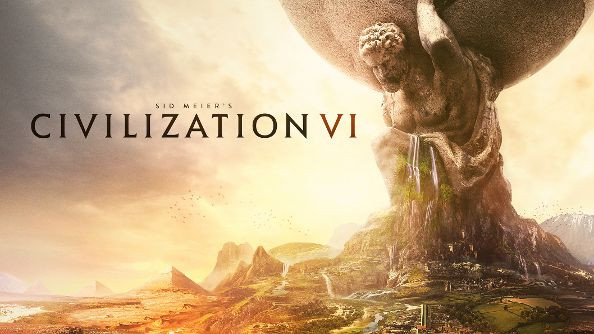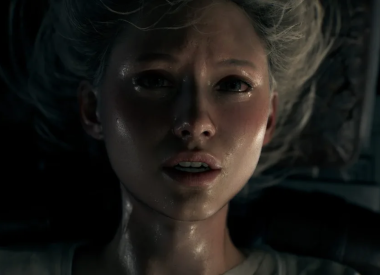Civilization 6 lead designer Ed Beach and lead producer Dennis Shirk talked new features of Civ 6 in IGN’s Developer Rewind Theatre, going over the launch trailer to point out interesting facts about the direction Civ 6 is headed. We all heard about the changes to cities and technology, but warfare, diplomacy, and even victory conditions are getting rehauled, too.
According to Beach, exploration in Civ 5 was “a high note for us in terms of what we thought was one of the best systems in any Civilization game.” To that end, the art style and user interface are grounded in the importance of exploration.
Even the fog of war has changed. In Civ 5, players grew familiar with the literal nebulous clouds wafted away by the probing of a trusty trireme. But now, discovery is centered as a core game concept from art to execution. Shirk stated, “Our fog of war all resembles a map now, so as you expose areas on the map, you actually have this mid-fog stylization that actually looks like a hand-drawn map in all those areas that you’ve already explored.”
Beach revealed that between the Great Wall of China, the Colosseum, the Forbidden City and the Pyramids, “You have just seen two civilization-unique improvements and two World Wonders. But it’s not obvious what’s what.”
Maybe Forbidden City and Colosseum are civilization-unique, and the Pyramids and Great Wall are World Wonders? It’s hard to say, as all are such icons of their respective cultures. Having more wonders that are only accessible to a certain civilization provides a lot of motivation to play as different civs, as well as giving each civ even more of a unique feel. Playing as China should feel different than playing from Rome, and keeping some wonders restricted to certain civs helps to maintain that distinction.
The Great Works system also makes a return in Civilization 6. Beach said, “A lot of that very interesting cultural victory that we introduced in Brave New World, we have the same elements of those here.”
The development team for Civ 6 includes many of the team members who worked on Civ 5’s expansions, including Beach himself. Gods & Kings and Brave New World introduced elements that deeply changed the way Civ 5 played, systems such as international trade routes, religion, the World Congress, espionage, and tourism and Great Works.
“We were huge fans of those systems and we didn’t want to see them go away. So we decided, well, we’re just gonna keep it all for when Civ 6 comes, right out the gates,” said Beach.
Shirk notes that the Great Works system is presented in an especially appealing way. “In Civilization 6, the presentation, the way you interact with it, is gorgeous and beautiful and everything the system deserves. It’s gonna surprise everybody, it’s just amazing.”
Beach also explained that the civilization leaders will be “very distinct.” Their agenda system will “drive them to each have things they care very deeply about.” This will be their historical agenda, though Beach has commented on the additional hidden agenda all leaders have as well. The hidden agendas are dynamic and change each playthrough, forcing players to discover these traits and adapt their playstyle appropriately.
The victory conditions have also seen significant changes. “There’s one victory type that’s gone from Civ 5, one brand-new one that has been added, and a number of them, including the Space Race, where the steps and process you go through to get there will be new and interesting,” said Beach.
Is diplomatic victory the one that’s been axed? The mention of Space Race seems to indicate that a science victory is still valid, and the pride with which Beach and Shirk discuss the Great Works and related systems seem to indicate that cultural victories remain valid. There’s no way domination victory is going anywhere, either. As for an entirely new type of victory, I’m drawing a blank. XCOM victory?
Diplomacy has been adjusted to change as eras unfold. At first, warfare will be the normal condition of foreign relations, and as time progresses, war will become a more formal affair. “You’ll have to formally declare war, you’ll establish embassies and so forth,” said Beach. Beach pointed to a Theodore Roosevelt quote to frame the changes to diplomacy: “As civilization grows, warfare becomes less and less the normal condition of foreign relations.” (Maybe diplomatic victory hasn’t been axed, after all.)
Shirk commented on the huge strategic shift entailed by Civ 6’s radical revisioning of what a city means. Civ 6 will have districts rather than a single city tile, and the districts can spread up to three tiles from the city. “Before, Civilization 5, past versions of Civ, you only had the city center to conquer. But because the cities are spread out into the landscape, you’re going to be fighting in your campus, you’re gonna be fighting in your holy site, your neighborhoods. It just introduces a whole new level of decisions you have to make to really defend what’s yours.”
Warmongers take heart: it also means you can choose to strategically cripple your enemies’ cultural or scientific districts if they seem too close to the appropriate victory. There are other changes to warfare, too: Civ 6 splits the difference between Civ 4’s stacks o’ doom and and Civ 5’s single-unit-per-tile by introducing limited unit stacking.
“Two like units will be able to combine into a more powerful corps. There will also be a new class of support units that can be embedded in other units to supplement their power, such as assigning field medics or anti-tank artillery to a squad of infantry, or formally linking up warriors with vulnerable settlers for protection out in the wilderness,” said Beach in an interview with DigitalTrends.
"Limited stacking will also restore the relevance of unit composition that many players missed in V, leading to a generally more robust wargame," he added.
As for technology, Beach described the changes as “a whole system of things you do to spark your people’s imagination out in the real world,” called Eureka moments or tech boosts. The change is intended to make the technology tree more immersive, dynamic and natural.
Associate producer Sarah Darney explained in a separate interview, “A lot of it is based on the map and what’s around you. So it changes each game.”
Changes to diplomacy, warfare, victory conditions and cities -- all seem to push players towards dynamic strategies that change in every game. And that’s the point, said Beach to Game Informer. “We built a game with so many options, but so much of the community is playing it this same way with the same pattern, and we want to shake that up and adjust to the map and leaders they are faced with to come up with other solutions, to rethink their strategic approaches every time they play the game.”
Do you welcome the changes to Civ 6 or fear them? Either way, Civ 6 launches on Oct. 21 this year, so gird your wallets and bank that vacation time. You’ll need it.


















